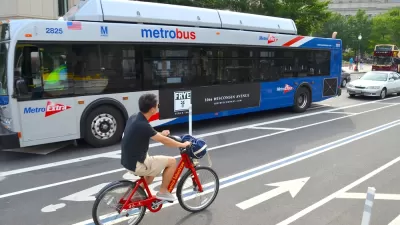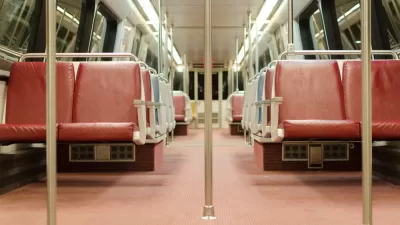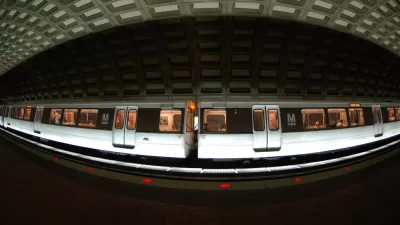The executive director of a research and policy center on privatization and responsible contracting says a proposal to privative parking operations at the Washington Metro Area Transit Authority would bring a half century of regret.
"Two weeks ago, WMATA began taking bids from private companies to operate its parking facilities," according to an op-ed by Donald Cohen, who is the executive director of In the Public Interest, research and policy center on privatization and responsible contracting.
"In exchange for a big up-front payment to the agency, the winning company would collect fees from people parked at train stations for the next 50 years," writes Cohen, who argues that the WMATA might regret that decision for the next 50 years as well.
Cohen calls the proposal "foolish," and lists reasons for doing so, including:
It discourages public transit. In order for the private company to make a profit, parking rates will have to go up — as much as 3% a year, according to WMATA. If it costs more money to park and ride the train, people may look for other ways into the city.
According to Cohen, the proposal to privatize WMATA's parking gets at fundamental questions about public goods and services, with answers crucial to public transit and cities as a whole.
The proposal to privatize WMATA's parking continues a trend of cash-strapped transit agencies looking to privative portions of their operations to cut costs. The Massachusetts Bay Transportation Authority, for instance, is considering a plan to privatize specific types of employment in the agency, such as bus drivers and maintenance workers. Cohen also cites the example of Chicago's decision to privatize its parking meters—a decision described in the past as "Exhibit A for bad public contracting."
FULL STORY: The Deal That Could Hurt D.C. For 50 Years

Trump Administration Could Effectively End Housing Voucher Program
Federal officials are eyeing major cuts to the Section 8 program that helps millions of low-income households pay rent.

Planetizen Federal Action Tracker
A weekly monitor of how Trump’s orders and actions are impacting planners and planning in America.

Ken Jennings Launches Transit Web Series
The Jeopardy champ wants you to ride public transit.

From Planning to Action: How LA County Is Rethinking Climate Resilience
Chief Sustainability Officer Rita Kampalath outlines the County’s shift from planning to implementation in its climate resilience efforts, emphasizing cross-departmental coordination, updated recovery strategies, and the need for flexible funding.

New Mexico Aging Department Commits to Helping Seniors Age ‘In Place’ and ‘Autonomously’ in New Draft Plan
As New Mexico’s population of seniors continues to grow, the state’s aging department is proposing expanded initiatives to help seniors maintain their autonomy while also supporting family caregivers.

USDOT Waters Down Self-Driving Car Regulations
The agency is reducing reporting requirements for autonomous vehicles and cars with self-driving features, prompting concern among safety advocates who say transparency is essential to the safe deployment of AV technology.
Urban Design for Planners 1: Software Tools
This six-course series explores essential urban design concepts using open source software and equips planners with the tools they need to participate fully in the urban design process.
Planning for Universal Design
Learn the tools for implementing Universal Design in planning regulations.
Heyer Gruel & Associates PA
Ada County Highway District
Institute for Housing and Urban Development Studies (IHS)
City of Grandview
Harvard GSD Executive Education
Toledo-Lucas County Plan Commissions
Salt Lake City
NYU Wagner Graduate School of Public Service





























